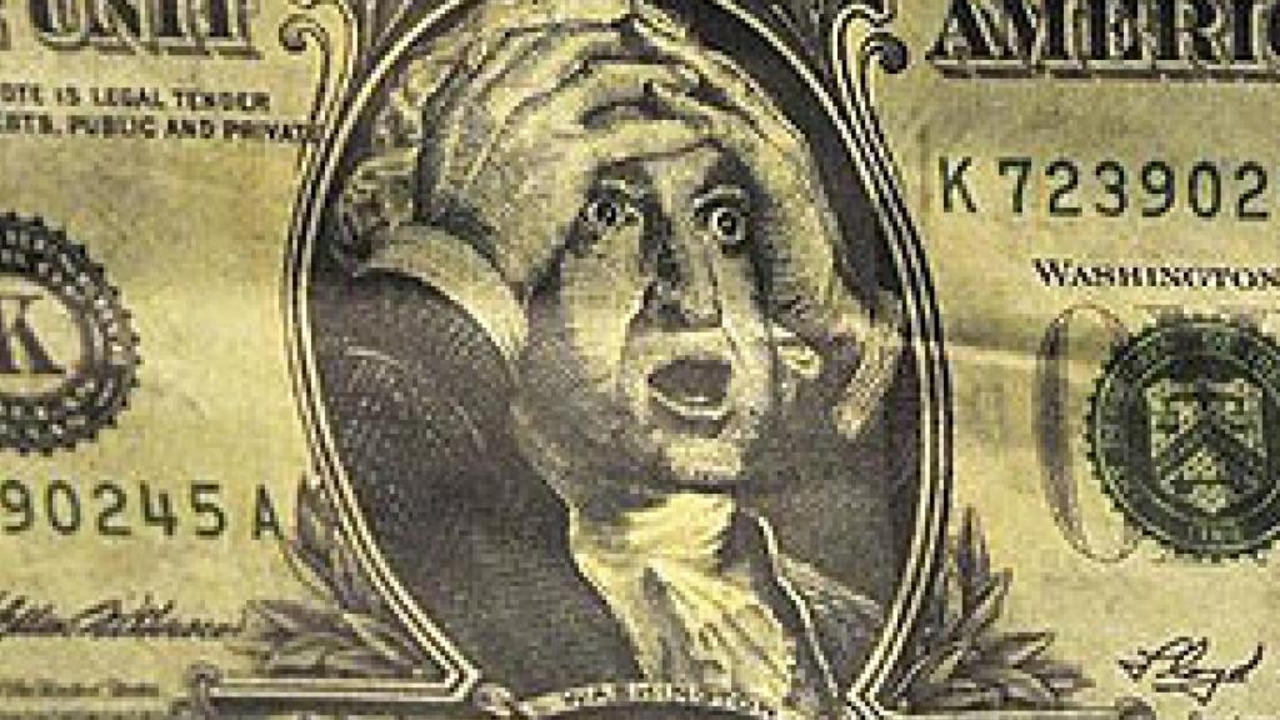Understanding The Recent Volatility of the Dollar
Aug 09, 2020
A lot has been made recently about a sudden plunge in the value of the dollar. Although the dollar has indeed plunged lately, it’s important to keep that “plunge” in its long-term perspective:

The legend is hard to read, but this is the value of the dollar from 1988 to today, with standard deviation lines drawn for the entire period.
The “plunge” in the dollar is… remarkably unremarkable; hardly worth any news.
So why is it in the news?
It’s in the news because people are trying to explain how the stock market has been defying gravity for the last few months.
But the remarkable market rally cannot be explained by an unremarkable drop in the dollar.
The market has been rallying because investors try to plan ahead by about six months. And, six months from now investors are expecting some kind of vaccine or other reprieve from the pandemic that has put most of us on our heels either working from home or wishing we could find work.
The Fed is promising to do everything in its power to keep us afloat.
Politicians on both sides of the aisle are trying to get re-elected, so they are throwing money at us too. And even Fauci is trying to sound optimistic about our chances with vaccine trials going at warp speed.
Additionally, this has been the year of the "retail" investor. Traditionally, "retail" or non-professional traders under-perform the market and their institutional peers. However, in today's Covid-19 world that has been upended and "retail" investors have outperformed hedge funds, indices, and professional money managers by wide margins. This has left many money managers scratching their heads trying to explain their lack of performance.
I can’t predict the market, and I can’t predict our chances with vaccines.
The truth is that I don’t have to. (and I think doing so is a losers game.)
What I can do is look at the industries that are a bargain compared to other industries.
DEMAND
Cable TV: A lot of us are watching more TV than usual – either to keep our own sanity or to entertain our kids. That’s likely to continue for the next six months, so it’s a reasonably safe industry to park our money.
Furniture: We’re spending a lot of time with our furniture and thinking that these old pieces we never paid attention to are really due for a replacement.
News Paper: We’re all glued to the news; both for the medical implications and the political fallout.
Utilities: We’re using more of our own utilities now that we have nowhere to go.
Shoes: We’re doing a lot of walking.
Insurance: Although the industries themselves seem to be stretched out paying losses, they are also getting new business that they won’t likely lose in the near future.
But those personal industries can only tell us what is happening right now. They don’t say much about the future, and that’s where supply comes in.
SUPPLY
Gas: the dollar may be cheap, but gas is even cheaper.
Engineering and Construction: We have a lot of office space we may not use in the future. But governments are talking about infrastructure spending. So this one is a coin toss of whether it’s supply or demand.
THE MARKET
We have a lot of people at home. The pandemic is raging. Government assistance is being argued and possibly reduced. Deferred mortgage payments will be coming due.
I’m as surprised as anyone else that the market has done so well in these circumstances.
But we don’t invest in the market. We invest in industries that are in current demand, or cheap from too much supply. When people are home, invest in the things those people need at home.
And when there are astonishing bargains like gas and construction, consider that other people might find them bargains too. Governments and businesses might make plans while those plans are cheap.
At Yields4u.com, we apply a rule-based approach to investing. For example, two of our model's most recent purchases were in the Insurance industry: Allstate and Chubb. We didn't buy into that industry because of the volatility, or by a rumor that they will do better or worse; we bought them because the technical and fundamental metrics we use indicate that they are under-priced relative to their value and that historically when the markets rise they will outperform their peers. Using an AI assisted rule-based approach to investing allows us to remove the error-prone human element of investing which has been driving today's crazy markets, and instead focus on the opportunities that have the greatest chance of success.
On a personal note, the pandemic is affecting family and friends. Many of us know someone we have lost, or we know someone else who we don’t want to lose. We have friends who are out of work and worried. We have kids who are either bored out of their mind or driving us crazy. And we have a political election that has many of us spending our free time arguing with each other.
May I suggest a different investment to consider?
People. Family and friends. Invest in them with time, with favors and errands for shut-ins – and most of all, with love.
Be well.
~ Tim Clontz
About Tim Clontz:
Tim, is one of our portfolio managers and a Financial Advisor. Tim has a Doctorate in Theological Studies from the Southern Bible Seminary and is currently the Director of IT Security for NAPA Services.
Clontz is an engineer by trade, and after years of following the "experts" and losing money in the market, Tim decided to apply his technical expertise to the challenge and created a set of AI strategies that have been successful at finding companies that have been wrongly undervalued by the market and are poised for a comeback.
Have Questions? Get the answers you need.

